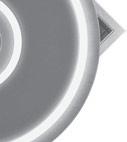Screaming is not speaking… I need the Dalek to speak.
ROBERT SHEARMAN




























































Screaming is not speaking… I need the Dalek to speak.
ROBERT SHEARMAN



























































UK | USA | Canada | Ireland | Australia India | New Zealand | South Africa
BBC Books is part of the Penguin Random House group of companies whose addresses can be found at global.penguinrandomhouse.com
Penguin Random House UK
One Embassy Gardens, 8 Viaduct Gardens, London SW11 7BW penguin.co.uk global.penguinrandomhouse.com
First published by BBC Books in 2025 1
Copyright © Robert Shearman 2025
Based on the audio drama produced by Big Finish in 2003 The moral right of the author has been asserted.
No part of this book may be used or reproduced in any manner for the purpose of training artificial intelligence technologies or systems. In accordance with Article 4(3) of the DSM Directive 2019/790, Penguin Random House expressly reserves this work from the text and data mining exception.
Doctor Who is produced in Wales by Bad Wolf with BBC Studios Productions.
Executive Producers: Jane Tranter, Julie Gardner, Joel Collins, Phil Collinson and Russell T Davies.
Typeset in 12.1/16.3pt Calluna by Six Red Marbles UK, Thetford, Norfolk
Printed and bound in Great Britain by Clays Ltd, Elcograf S.p.A.
The authorised representative in the EEA is Penguin Random House Ireland, Morrison Chambers, 32 Nassau Street, Dublin D02 YH68
A CIP catalogue record for this book is available from the British Library
ISBN 9781785949579
Penguin Random House is committed to a sustainable future for our business, our readers and our planet. This book is made from Forest Stewardship Council® certified paper.
Chapter
Chapter
Chapter
For Colin Baker – my favourite Doctor to work with, and the best Doctor to write for.
And in memory of Maggie Stables – who was kind and wise and funny, and who loved being Evelyn Smythe.
This royal throne of kings, this sceptred isle, This earth of majesty, this seat of Mars. This other Eden, demi-paradise, This fortress built by Nature for herself Against the Daleks and their nasty schemes, This happy breed of men, this little world, This conqueror of evil metal things Which sought to take our nation for themselves But learned that blood of Englishmen Was stronger stuff than polycarbide arms. This blessed plot, this realm, this England, Pure England, England for the English, Heroes all, in this her jubilee.
Set the bunting to stream forth, let the fireworks fly. There is a Dalek we have captured. It is time it should die.
William Shakespeare, with amendments from the Arts Council of the English Empire, by order of the Poetical Instruction Act. All praise the glorious English Empire.
There had been a time when it had taken some pleasure in the killing of spiders. Pleasure was an alien thing. It was something to be distrusted. By rights, it knew that it should be punished for feeling it, let alone seeking it. But it had been such a tiny pleasure, kept secret within the very heart of its being, and there was no leader to whom it could report its transgression, no authority that would give it punishment.
And, really, wasn’t it being punished enough already? The cell was cold and damp. Perhaps that was why the spiders took shelter within its casing? Closer to the warmth of another living creature. A century ago it had been imprisoned, and the first thing the humans had done was to smash open its shell, and now its once proud polycarbide armour lay gaping open, multiple cracks and fissures exposing the flesh beneath. And this is where the spiders would come, bridging those cracks with their cobwebs. Catching flies and laying eggs and giving birth to new spiders, who would catch flies and lay eggs in turn. Creating life and taking life, like all free creatures do. It could not protect itself from the humans. All its defensive capabilities had been removed or shattered. But
it found it could still generate a faint electric field over its metal casing. There was little power to the charge. It would not so much as cause a human’s fingers to tingle. But it could fry a cobweb. And, if it was timed right, and they were not given a chance to escape, it could fry the spiders too.
And for long years this was how the prisoner measured its captivity. The humans would come every once in a while, and they would torture it. They would attach electrical cables to it and they would boil it and they would catch all the liquid that would run off its body. There was pain and, worse still, there was humiliation. Then they would just leave, they would lock it away once more, and no one would come to visit, not for weeks, not for months sometimes. And then the spiders would return, and take up residence once more, and it could resume torturing them in kind.
But it did not want to kill the spiders any longer. It had not wanted to for a long time. It did not know why.
Entire generations of spiders would live and die in the cracks of its wounded body, and at any time it knew it could destroy them. It waited for the right moment, the exact moment their deaths would give it the greatest satisfaction. And for years now, that moment had not come. So, still, it waited.
The spiders tickled against its sensory receptors, and the tickle was not a good feeling, but it was nevertheless a feeling.
Doctor Who: Jubilee
And now, when the humans came to torture it, its fear was only for the spiders – it was imperative the spiders not be hurt! The spiders must not be hurt! Imperative the cobweb not be destroyed! The spiders were wise. They learned they should scuttle away and take refuge as soon as the humans came in with their objects of pain. For that the prisoner felt some relief.
It could not hurt the humans, and yet always they were afraid of it. The spiders never showed any fear at all. Perhaps that was why it no longer killed them. Perhaps it almost admired them for that. It did not know. The spiders were a weaker species. Why would it protect a weaker species?
But a Dalek does not protect a weaker species. It subjugates it, or enslaves it, and then destroys it. This was how the Dalek knew it had been driven mad. And it would have talked to the spiders. It would have given in to the insanity of that. It would have talked to them even though it knew they could not reply, even though it knew the act would be entirely senseless. Just to break the agonised monotony of an existence it no longer desired, and knew it no longer deserved. But the humans, it knew, had installed spying machines around the cell. Cameras and recording devices and alarms that would be triggered if it made the slightest sound. It did not want to give the enemy the gratification of seeing it reduced to this state. Once a supreme soldier of the greatest race in the universe. Now pathetic, and defeated, and entirely irrelevant.
The Dalek had not spoken for one hundred years. It had not spoken a single word. It had no other power remaining. It could not fight. It could not kill. It could not fulfil its Dalek glory. But it could refuse to speak. That was its last shred of self. Still defiant in a world that was now so very, very small, a world of pain and isolation and silence.
Suddenly, the spiders fled. This was how the Dalek knew that the humans were coming. These days the spiders’ instincts were keener than its own.
Daleks do not feel surprise as such, they instead register anomalies of behaviour and react to unpredictable acts with a defensive pragmatism that is cold and ruthless. But the Dalek knew by now it felt a whole array of very different emotions, and so acknowledged that it was, indeed, surprised. The humans had boiled it only a few days previously. It had not expected them to return for many months more.
It heard the familiar throb of the magnetic generator being activated, felt itself held tight into place against the metal floor. It was another demonstration of how much the humans feared the Dalek. Even though there was nothing it could do to resist them, still they would incapacitate it completely, ensure that it was unable to move. Little did they know that the Dalek would not have moved. It would not have so much as flinched. It would stand steadfast throughout their torture, and in that way assert its superiority. How it despised them.
Doctor Who: Jubilee
There were two humans in the cell. This was not in itself unusual. There were always at least two in attendance; no one was permitted to be left alone with such a dangerous prisoner. One of them the Dalek thought it recognised – a soldier, strong, brutish. The Dalek found it difficult to tell these humans apart, but it felt sure this soldier had inflicted pain upon it many times. But the other man was dressed differently – smart, in some sort of suit, with a tie around his neck – and he was younger too, and fatter. Plump cheeks and a double chin, and a rotund belly that seemed to spill out over his trousers – quite useless for the front line. This, then, was a politician. The Dalek had been visited by many politicians when it had first been captured, but not in many years. They no longer took much interest.
And the soldier was frightened, but only in the way all the humans who came were frightened. The politician was genuinely terrified. The Dalek could feel the man’s spiked adrenalin, hear his rapid heartbeat, all but taste his sweat.
‘Are you all right, sir?’ asked the soldier.
The politician was staring at the prisoner in wonder. ‘I have never seen it close up before. It is so different to the ones on the television.’
‘Yes, sir.’
The politician licked his lips nervously. ‘Even after all we have done to it. You have to admit. It is still an awesome sight.’
‘You would not think so, sir,’ said the soldier, ‘if you were the one who had to clean up after it bleeds.’
The politician shot the soldier a withering look; the soldier took the trouble to look suitably apologetic. Then, taking a deep breath, his heartbeat getting faster, the politician took one decisive step forward.
‘My name is Sidney Farrow. Senior cabinet minister to the English Empire. Maybe you have heard of me? No. No, I see you have not. I bring you a message from the President, to be delivered to you with all Presidential puissance.’
Farrow stared at the Dalek boldly. Then he shuffled in his pocket for some papers, which rather undid the effect.
He read, ‘The President demands that you should talk. He does not mind what it is you say. He does not care whether your words are apologies or threats. He just wants you to speak. To say anything at all.’
Farrow paused, and the Dalek did not know whether he was expecting a reply or was simply gathering enough saliva into his dry mouth to enable him to continue. The Dalek suspected the latter.
‘Know this,’ Farrow went on. ‘That if you do not cooperate, if you refuse to do as the President demands, we are authorised to use extreme force. For one hundred years our scientists have studied you. We know how to inflict pain. Talk now. And allow us to be humane.’
This time, the Dalek concluded, the pause was indeed left for a reply. It did not give one.
Doctor Who: Jubilee
‘No surprise there, then,’ muttered the soldier. ‘So, what now? Do I get to torture it?’
‘Yes,’ said Farrow. He seemed a little disappointed. ‘Yes, I suppose so. Do you think you can get it to talk before the jubilee celebrations tomorrow?’
‘No idea,’ said the soldier. ‘Still. I can give it my best shot.’
‘Can’t,’ he said.
‘Shan’t,’ she replied.
‘Won’t,’ he said.
She gave this some little thought. Then, with deliberation, making sure not to let her mouth crease into even the hint of a smile, she countered with a ‘Wouldn’t.’
The President and his wife were playing Contractions once again. There were no clear rules to the game. There was some vague sense that one must not repeat a word, and that no matter how indecent or shocking the contraction might be, at no point should the speaker break an ordered composure. At all times the forbidden words must be delivered with the same relaxed poise as if they were any other that could be used freely and without fear of imprisonment throughout the vast sway of the English Empire.
President Nigel Rochester did not like the game of Contractions. The thought of all those illegal apostrophes flying through the air around him made him feel quite ill. But he pretended to like it for his wife’s sake. Whenever Miriam went to bed, she always needed some
special treat or distraction or she simply would not sleep, and the next morning she would be tired and grumpy. He used to read her little fairy tales – stories of alien pepperpots and their thwarted plots for global domination – but she had tired of those, and now she preferred playing at games that made her feel naughty and transgressive.
And she was feeling particularly transgressive tonight, he knew – she was overexcited, of course, with all the jubilee celebrations that would take place the next day. He sat on the corner of her bed and looked at her – she was still wide awake, her eyes were gleaming, she could barely stop fidgeting beneath the sheets. Perhaps he should not be playing Contractions with her at all. Perhaps he should have slipped her some sort of knockout drug. No. No, that would be unkind. He should not do that.
So – ‘Shouldn’t,’ he said.
And at that Miriam could no longer help it – she squealed with laughter. ‘Mustn’t!’ she cried. ‘Oh, mustn’t! You win! Oh, Nigel, I do so love it when you are being rebellious.’
‘Perks of the Presidency,’ said Nigel primly. ‘If we cannot break the law, what point in having them? But now enough is enough. Even between ourselves, only the barest modicum of rebellion can be tolerated.’
‘Are you coming to bed soon?’
‘Of course not!’ said Nigel. ‘I am the President, I am! I have matters of state to attend to! I am important!’
‘Yes, darling,’ Miriam agreed. ‘Things quite over a silly woman’s head like mine.’
Doctor Who: Jubilee
‘Indeed,’ said Nigel, and sniffed, somewhat mollified. ‘You are very impressive,’ said Miriam. ‘When you are like this, I do not know, but . . . it takes me back to those halcyon days when we were first married. We were in love then, were we not?’
Nigel suggested, after a pause, ‘Get some beauty sleep.’
Miriam chuckled. ‘I certainly shall! Because what use will I be if I get all ugly! I am your little painted butterfly.’
Nigel looked down at his wife and considered her thoughtfully. He did not like to look at his wife terribly often, but sometimes the fancy took him. She was not as pretty as a painted butterfly, or any sort of butterfly, come to that. She may have been once.
He wondered how old she was. Forty, fifty, sixty? He supposed he could work it out – take the age she was when they got married and add on all the years since – but he was not convinced he had asked her age back then anyway, he would not like to have shown such vulgar curiosity. She liked wearing bonnets because she thought they made her look young, especially if they were brightly coloured and had long tassels she could tie under her chin in a double bow. He did not know where she had got the bonnet idea from – but as the President’s wife she set the standard for fashion in his realm, so now all the women wore bonnets. And too much make-up – Miriam did not so much try to conceal her wrinkles as blast them out of existence. She never especially bothered to smooth the make-up in, so at all times on her cheeks there were two big fat splodges of red which looked like bruises.
She was wearing a bonnet now, of course, even in bed. And the fat red splodges were once again staining her pillow. He was glad that he, at least, was an attractive man. He had a physique that looked like a marble statue – which was perfectly right, of course, because as the President he had commissioned several marble statues of himself, and had them dotted all about the Empire. Strong, resolute, eternal. A beacon of hope and pride for his noble peoples. He wasn’t sure how old he was either, come to that. He could never remember.
Miriam snuggled down, put her head upon the pillow, sighed happily. She asked softly, ‘And will the Doctor be here soon?’
‘He has been sent for,’ said Nigel. ‘Because we cannot have the Daleks without the Doctor, can we? What sort of jubilee would that be?’ He bent over his wife. He wondered whether he should give her a kiss. Why not? he thought. It was a special occasion. He brushed his lips against her forehead.
‘Night night,’ he said. ‘Sleep tight. Take care the Daleks do not bite.’
As he turned the light off and walked from the room he could still hear his wife giggling at the very thought.
The Doctor had decided to take a bath. Every night before he went into battle against the Daleks, he would reward himself with one particular treat. Sometimes he would have a good meal – fish, perhaps, with something truly exotic, like chips. Sometimes he would put on a
Doctor Who: Jubilee
disguise and go for a walk in the city that adored him. And at other times, he would just lie down on his bed, all alone, with no one watching, and no one expecting him to be a hero, and go to sleep.
But tonight, he’d chosen the bath.
Choices did not come easily to the Doctor. He was, for all his outward bravado, a rather shy and timid man. But he knew that choice was a rare luxury for most citizens of the English Empire, so he must take the privilege seriously. He made the choice to take a bath very, very seriously indeed.
The Doctor, now in his thirty-seventh incarnation, was a man with a clever haughty face and a tousled mop of fair curly hair. He had cultivated both very specifically, he’d been told at a young age that he had the right Doctorish look – eccentric yet approachable – and he’d worked hard, and climbed the ranks, and had beaten off the competition. And now he was truly, unequivocally, the Doctor. Or, at least, for as long as his country wanted him to be.
He watched as the water flowed out of the taps and the bath began to fill. So much water being wasted, and all just so he could make himself clean. It was positively decadent. He put in some bubble bath. He liked to watch the bubbles pop.
When he’d been a young man he had liked things going bang, of course he had. And no bang was better than when a Dalek got blown up, they made the best bangs of all. But over the last few years he had blown up an awful lot of Daleks, and he’d grown rather tired of